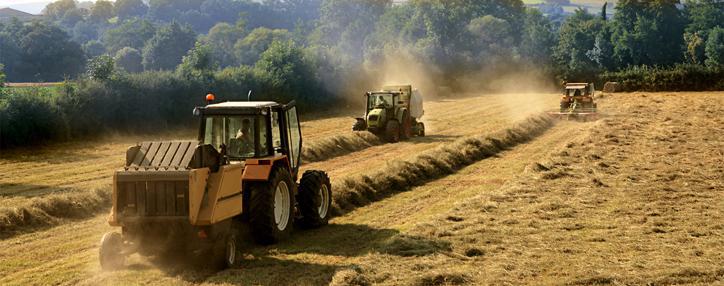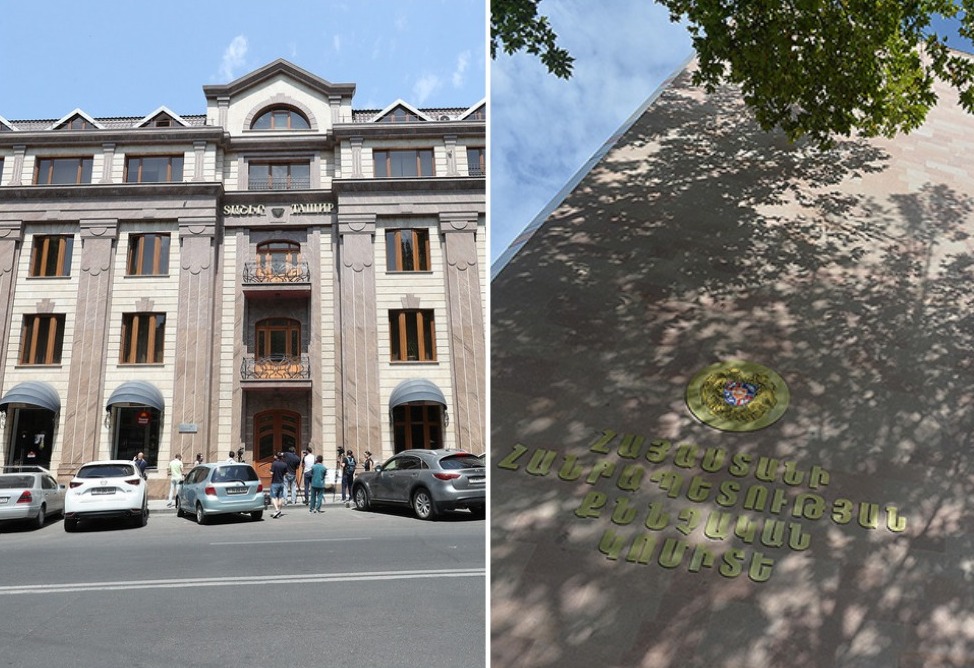Trade in agricultural products among EEU members increased by 63% in 2017 to $8.2 billion
22.02.2018,
17:29
The trade in agricultural products among the member countries of the Eurasian Economic Union (EEU) increased by 63% in 2017 when compared to 2010, when the Customs Union was established, amounting to $8.2 billion, according to Stanislav Buben, a senior official at the Eurasian Economic Commission, in charge of EEU agricultural policies, who spoke at a roundtable organized by the Russian Union of Industrialists and Entrepreneurs

YEREVAN, February 22. /ARKA/. The trade in agricultural products among the member countries of the Eurasian Economic Union (EEU) increased by 63% in 2017 when compared to 2010, when the Customs Union was established, amounting to $8.2 billion, according to Stanislav Buben, a senior official at the Eurasian Economic Commission, in charge of EEU agricultural policies, who spoke at a roundtable organized by the Russian Union of Industrialists and Entrepreneurs
According to the Eurasian Economic Commission, the export of food products to third countries doubled during the same period. Exports of agricultural goods and foodstuffs among the EEU members countries grew by $3.6 billion from the previous year to $20.6 billion.
Buben noted also that in 2017 agricultural products from the EEU members were sold in 155 countries. The main consumers were the CIS countries (14.2%), the European Union (11.7%), China (9.6%), Turkey (9.2%), Egypt (8.6%), the Republic of Korea (7, 1%) and Iran (3.6%).
"Trade in agricultural products of the EEU member countries has reached a new level in recent years. In 2010 the EEU was one of the largest importers of agricultural goods with a negative balance of about $30 billion. In 2017 the balance fell to the lowest level for the entire period - minus $9.6 billion,’ according to Buben.
According to the forecasts of the Commission, by 2020, the EEU will be able to ensure stable exports of beef - up 30 thousand tons. The key partners will be the CIS countries and China. In the long term, supplies to Vietnam, Bangladesh, South Korea, Indonesia and others are supposed to grow.
"In 2017, as in previous years, the main export commodity was grain, which accounted for 9.8% of all exports. In this regard, it is advisable to diversify the exports," Buben stressed. -0-
According to the Eurasian Economic Commission, the export of food products to third countries doubled during the same period. Exports of agricultural goods and foodstuffs among the EEU members countries grew by $3.6 billion from the previous year to $20.6 billion.
Buben noted also that in 2017 agricultural products from the EEU members were sold in 155 countries. The main consumers were the CIS countries (14.2%), the European Union (11.7%), China (9.6%), Turkey (9.2%), Egypt (8.6%), the Republic of Korea (7, 1%) and Iran (3.6%).
"Trade in agricultural products of the EEU member countries has reached a new level in recent years. In 2010 the EEU was one of the largest importers of agricultural goods with a negative balance of about $30 billion. In 2017 the balance fell to the lowest level for the entire period - minus $9.6 billion,’ according to Buben.
According to the forecasts of the Commission, by 2020, the EEU will be able to ensure stable exports of beef - up 30 thousand tons. The key partners will be the CIS countries and China. In the long term, supplies to Vietnam, Bangladesh, South Korea, Indonesia and others are supposed to grow.
"In 2017, as in previous years, the main export commodity was grain, which accounted for 9.8% of all exports. In this regard, it is advisable to diversify the exports," Buben stressed. -0-



